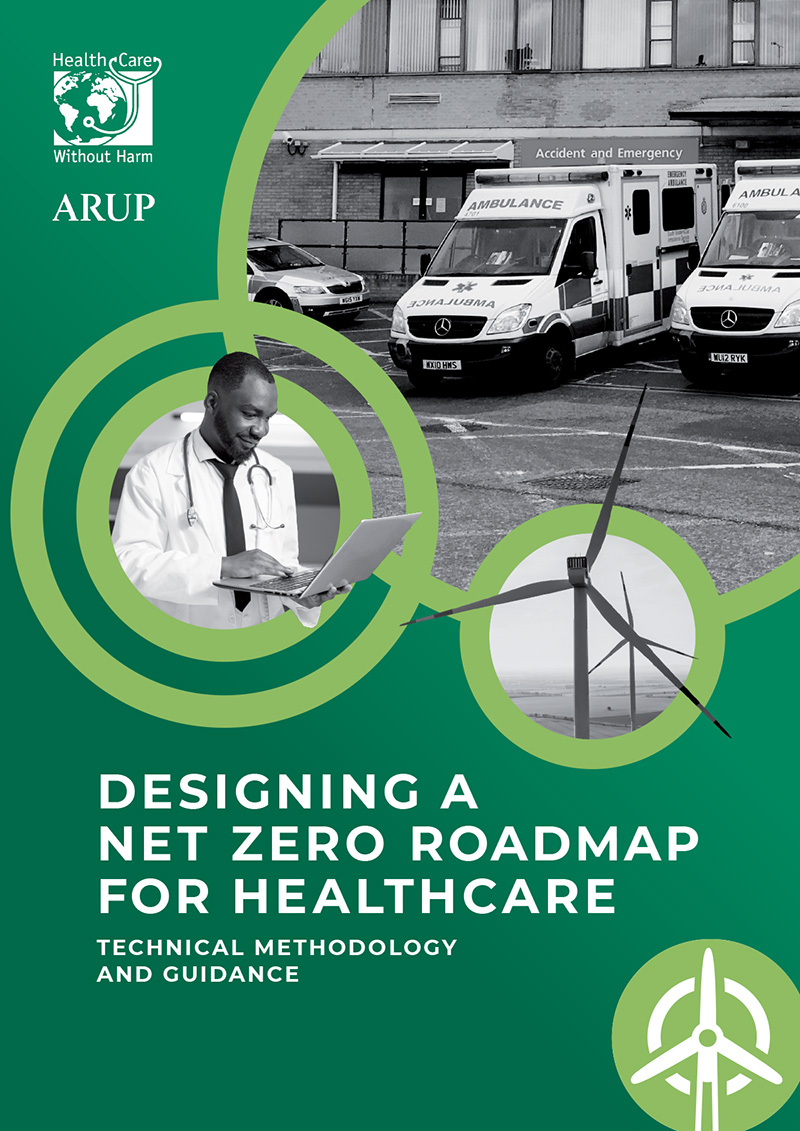How can we achieve a net zero healthcare sector?
 Our latest publication, Designing a net zero roadmap for healthcare: Technical methodology and guidance, supports any health authority to measure its healthcare emissions and develop a Paris-compatible decarbonisation roadmap. Developed as a part of our Operation Zero project, in collaboration with Arup and three national and regional health ministries/authorities, this methodology was created for the healthcare sector by the healthcare sector.
Our latest publication, Designing a net zero roadmap for healthcare: Technical methodology and guidance, supports any health authority to measure its healthcare emissions and develop a Paris-compatible decarbonisation roadmap. Developed as a part of our Operation Zero project, in collaboration with Arup and three national and regional health ministries/authorities, this methodology was created for the healthcare sector by the healthcare sector.
Join our online launch event, Designing a net zero roadmap for healthcare, on 1 September, 10:00-11:30 CEST. The event will feature speakers from WHO Europe, HCWH Europe, Arup, and health authority representatives from the Netherlands, Portugal, and Italy, who piloted this methodology.
Register for the launch event via Zoom.
How healthcare can address climate change
The climate crisis is a health crisis that must be addressed on all fronts. The healthcare sector is responsible for 4.4% of total global net emissions. If it was a country, it would be the fifth largest emitter on the planet. By ensuring its operations are climate-smart, the sector has the opportunity to address its own impact and lead by example.
Individual healthcare providers across Europe are already leading a bottom-up approach to decarbonisation. To advance net zero healthcare, health facilities throughout Europe will also need the support and direction of a system-level approach.
Net zero healthcare
Designing a net zero roadmap for healthcare sets out a step-by-step process for establishing a decarbonisation roadmap for healthcare systems that is aligned with the principles of the Paris Agreement, including how to calculate a carbon footprint, model emissions trajectories, and develop the appropriate governance structures to support the process.
This technical methodology is primarily aimed at analysts working within national or regional health authorities, but also includes guidance for policy officials. It was piloted by three national and regional health authorities, ensuring that it is robust and ultimately drives action among European health systems.
